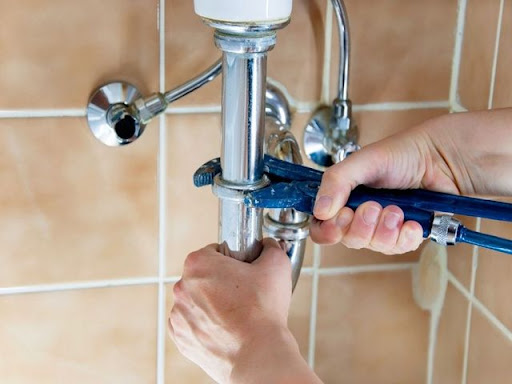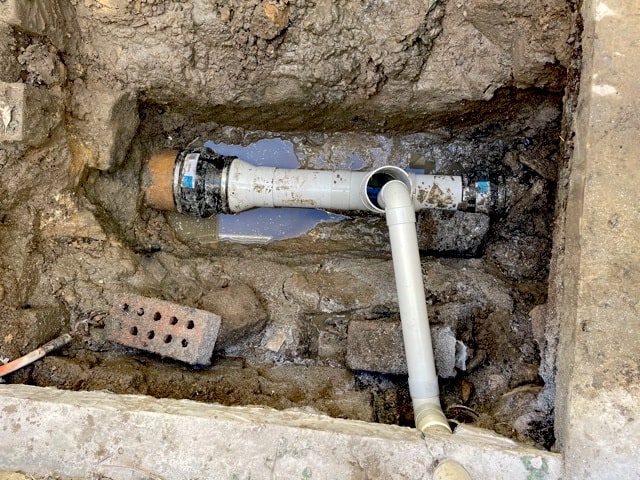
Maintaining a healthy plumbing system is essential for keeping your home running smoothly. Neglecting your plumbing can lead to costly repairs, water damage, and a lot of unnecessary stress. By regularly cleaning and maintaining your plumbing system, you can prevent common issues such as clogs, leaks, and other plumbing disasters. In this guide, we’ll cover essential tips and techniques to help you keep your plumbing in top condition.
1. Regular Inspections: The First Line of Defense
Regular inspections are key to catching problems before they escalate. At least once a year, take the time to inspect all visible pipes, fixtures, and appliances connected to your plumbing system. Look for signs of corrosion, leaks, or damage. Pay special attention to areas under sinks, around toilets, and near water heaters. If you notice any signs of trouble, address them promptly.
Tips for Inspecting Your Plumbing:
- Check for leaks under sinks and around fixtures.
- Look for rust or corrosion on pipes.
- Test the water pressure from all faucets.
- Inspect your water heater for signs of rust or leakage.
2. Keep Drains Clean and Clear
Clogged drains are one of the most common plumbing problems. Preventing clogs starts with being mindful of what goes down your drains. Avoid pouring grease, coffee grounds, and other debris down the kitchen sink. In the bathroom, keep hair and soap scum from accumulating in drains by using drain covers.
DIY Drain Cleaning:
- Use Boiling Water: Pour boiling water down your drains weekly to dissolve buildup.
- Baking Soda and Vinegar: For a natural cleaning solution, pour 1/2 cup of baking soda followed by 1/2 cup of vinegar down the drain. Let it sit for 15 minutes, then flush with hot water.
- Plunge Regularly: Keep a plunger handy for minor clogs. For tougher clogs, a plumbing snake can help remove obstructions.
3. Maintain Your Water Heater
Your water heater is a critical component of your plumbing system. Regular maintenance can extend its life and improve efficiency. Sediment buildup in the tank can lead to reduced efficiency and even damage the unit over time.
Water Heater Maintenance Tips:
- Flush the Tank: Drain a few gallons from the tank every 6 months to remove sediment. This can be done by attaching a hose to the drain valve at the bottom of the heater and letting it run until clear.
- Check the Pressure Relief Valve: Lift the lever to ensure it releases water. If it doesn’t, it may need to be replaced.
- Inspect for Leaks: Look around the base of the water heater for any signs of leakage.
4. Prevent Frozen Pipes
Frozen pipes are a common problem in colder climates and can cause severe damage if they burst. To prevent this, insulate pipes in unheated areas like basements, crawl spaces, and attics. On extremely cold days, let faucets drip slightly to keep water moving.
Tips to Prevent Frozen Pipes:
- Insulate Exposed Pipes: Use foam pipe insulation to cover pipes in cold areas.
- Seal Gaps: Seal any gaps or cracks in walls near pipes to keep cold air out.
- Keep Cabinet Doors Open: Allow warm air to circulate around pipes by opening cabinet doors under sinks, especially during cold snaps.
5. Fix Leaks Promptly
Leaky faucets and pipes not only waste water but can also lead to bigger problems like mold growth and water damage. Even small leaks can significantly increase your water bill over time. Regularly check for leaks and repair them as soon as they are discovered.
How to Fix Common Leaks:
- Leaky Faucets: Most faucet leaks are due to worn washers or seals. Replacing these parts is usually straightforward.
- Pipe Leaks: For minor pipe leaks, pipe clamps or epoxy putty can be a temporary fix until a plumber can make a permanent repair.
- Toilet Leaks: Check the flapper in the toilet tank; if it’s worn, it may not be sealing properly and can cause leaks.
6. Maintain Your Sewer Line
Your sewer line is an essential part of your plumbing system. Keeping it clear is crucial for preventing backups and sewage leaks. Tree roots are a common cause of sewer line blockages, so be mindful of planting trees or shrubs near your sewer line.
Sewer Line Maintenance Tips:
- Schedule Regular Inspections: Have a professional inspect your sewer line every few years.
- Avoid Flushing Non-Flushables: Only flush toilet paper and human waste. Wipes, sanitary products, and other items can cause clogs.
- Use Enzyme Cleaners: Use a monthly enzyme-based cleaner to help break down waste and keep your sewer line clear.
7. Install Water Softeners and Filters
Hard water can cause scale buildup in pipes and appliances, reducing efficiency and shortening their lifespan. Installing a water softener can help mitigate these effects by removing minerals like calcium and magnesium from your water supply. Additionally, consider installing water filters to remove impurities and protect your plumbing.
Benefits of Water Softeners and Filters:
- Reduced Scale Buildup: Soft water reduces scale buildup in pipes and fixtures.
- Prolonged Appliance Life: Appliances like dishwashers and washing machines will last longer with soft water.
- Improved Water Quality: Water filters can improve taste and remove harmful contaminants.

8. Be Mindful of What You Flush
To keep your plumbing system functioning properly, it’s important to be cautious about what you flush down toilets and drains. Items like wipes, feminine hygiene products, and cotton balls should never be flushed as they can cause serious blockages. Come and check out www.hi-techplumbingandair.com/plumbing-jupiter/ to find additional tips and ideas about plumbing.
Items to Avoid Flushing:
- Non-Flushable Wipes: Even if labeled as flushable, these wipes don’t break down easily.
- Paper Towels and Tissues: Unlike toilet paper, these products don’t dissolve and can cause clogs.
- Grease and Oil: Never pour grease or oil down the drain; instead, dispose of it in the trash.
9. Know When to Call a Professional
While many plumbing maintenance tasks can be handled by homeowners, some issues require professional expertise. If you encounter persistent problems, such as frequent clogs, slow drains, or significant leaks, it’s time to call a licensed plumber. Regular professional inspections can also help catch potential problems early and keep your plumbing system in excellent condition.
When to Call a Plumber:
- Persistent Clogs: If plunging and snaking don’t work, it’s time to get professional help.
- Major Leaks: Leaks that can’t be easily fixed or are causing damage need immediate attention.
- Sewer Line Issues: Sewer line problems are best handled by a professional to prevent health hazards.
Conclusion
Regular cleaning and maintenance of your plumbing system can save you time, money, and stress in the long run. By following these tips and keeping an eye on your plumbing, you can prevent many common issues and ensure that your system remains in top condition. Remember, a little preventive maintenance goes a long way in keeping your home’s plumbing running smoothly.
